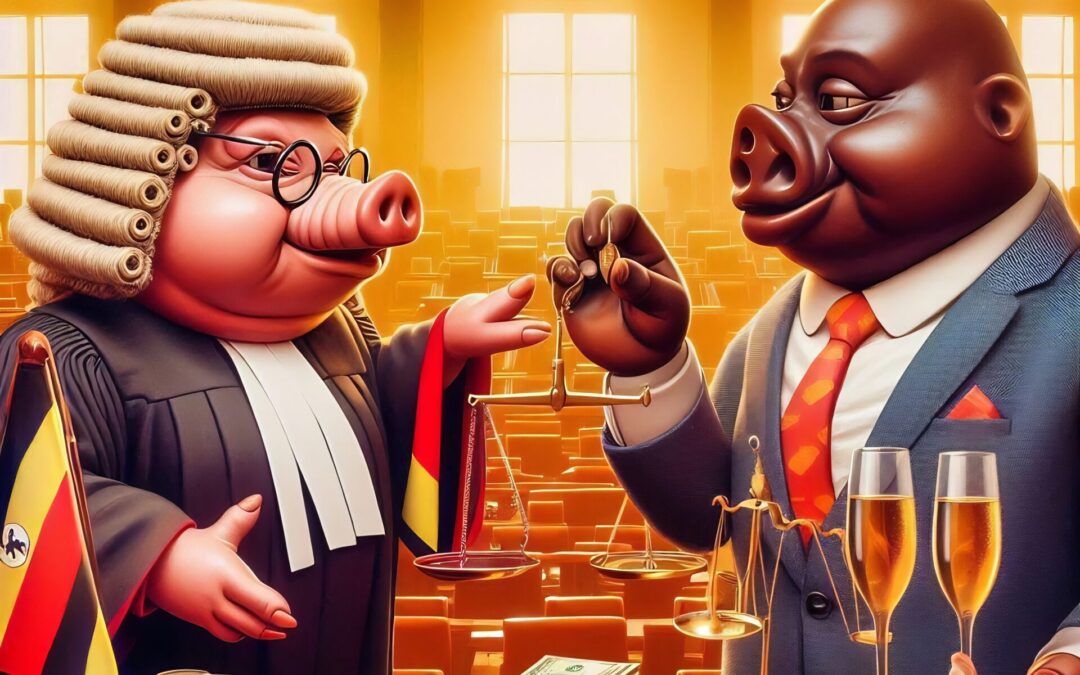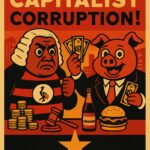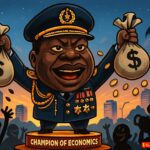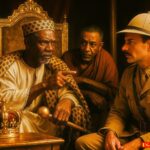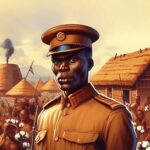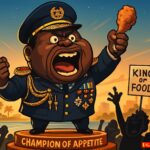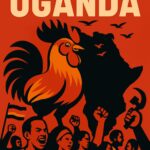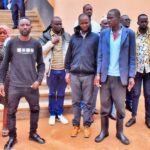The Betrayal of Bobi Wine: How Uganda’s Revolution Was Hijacked
In the sweltering heat of Kampala, where dust mingles with dreams and despair, Uganda’s fight for freedom has taken a dark and twisted turn. What began as the fiery People Power movement—a beacon of hope against decades of dictatorship—was co-opted into a spectacle of corruption, cronyism, and betrayal under the National Unity Platform (NUP). Led by Bobi Wine, once hailed as the ‘Ghetto President,’ the movement now stands accused of mirroring the very oppression it sought to dismantle. Meanwhile, Yoweri Museveni, the aging lion of Ugandan politics, watches from State House, masterfully pulling strings to ensure dissent is fractured and futile. Yet, amidst the ruins of broken promises, whispers of resistance rise again. Ordinary citizens, activists, and poets refuse to surrender, reigniting the flame of genuine liberation. This is the story of Uganda’s tumultuous struggle for justice—a tale of greed, resilience, and the unyielding human spirit.

Chapter 1: The Masquerade Begins
Kampala, Uganda – A City of Contrasts
In the sweltering heat of Kampala, where red dust mingled with dreams and despair, life unfolded in a chaotic ballet. The city was alive—its streets teeming with boda-boda riders weaving through traffic like daredevils on two wheels, hawkers shouting their wares, and children playing football amidst potholes that could swallow a Land Cruiser whole. But beneath this pulsating rhythm lay a peculiar phenomenon, one that would come to define an era of Ugandan politics—a transformation so bizarre it felt almost Shakespearean in its cruel irony.
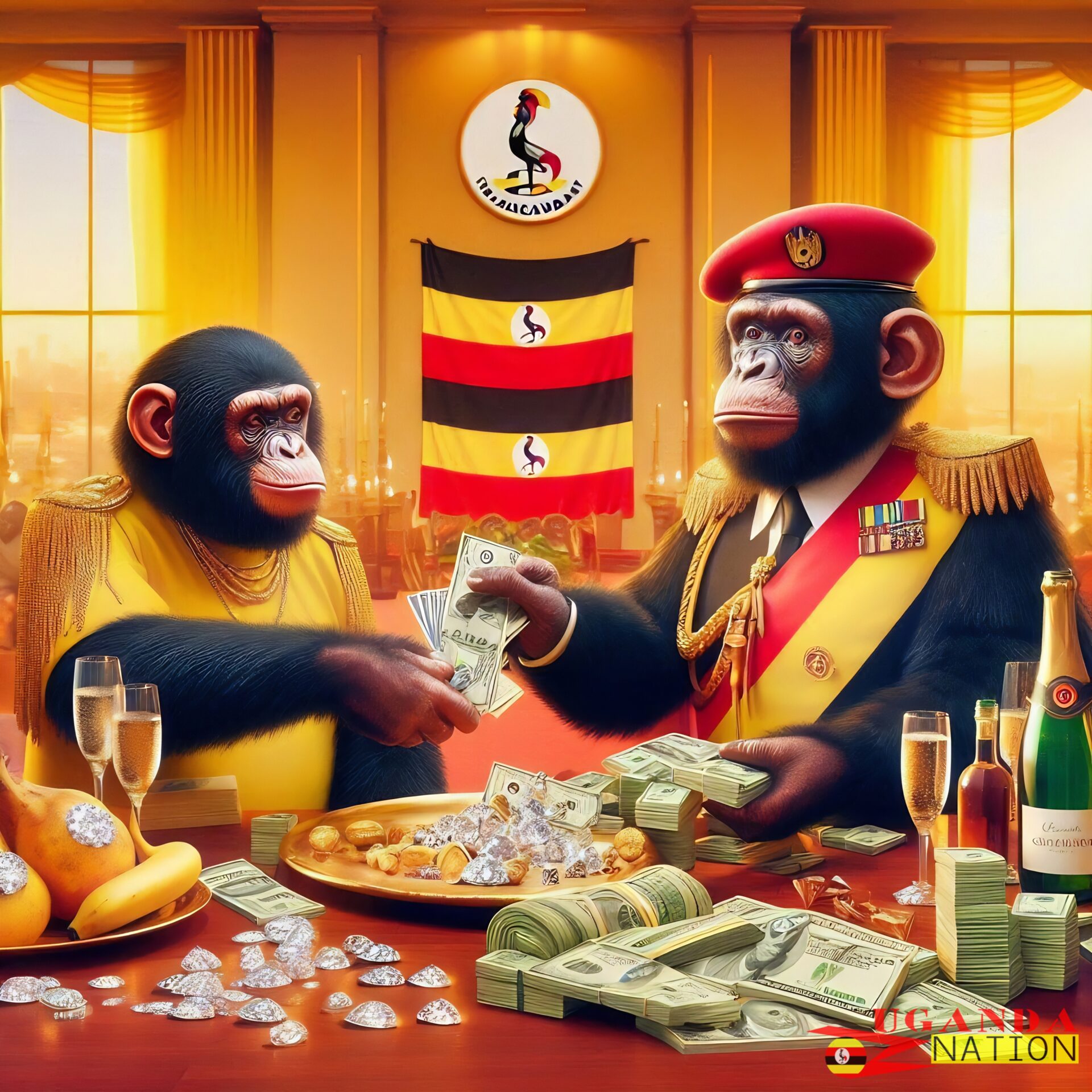
What began as People Power , a grassroots movement born out of frustration with decades of authoritarian rule, had morphed into something far darker and more sinister: the National Unity Platform (NUP). This metamorphosis was not the result of organic evolution or popular demand but rather a rushed, botched creation—a premature child thrust into the world by opportunistic midwives eager to claim ownership over its soul.
“Bobi Wine”: From Rebel Rouser to Puppet Master?
At the helm of this strange new entity stood Robert Kyagulanyi Ssentamu, better known to the masses as Bobi Wine. Once hailed as the “Ghetto President,” his name had become synonymous with rebellion against oppression. His reggae-infused anthems spoke of suffering, resilience, and hope, resonating deeply with Uganda’s youth—a demographic tired of being treated as pawns in Yoweri Museveni’s endless game of chess.

Yet now, whispers filled the smoky corners of roadside bars and crowded markets across Kampala. Was Bobi Wine truly the freedom fighter he claimed to be? Or had he succumbed to the same temptations that corrupted countless others before him? Some said he was merely another puppet dancing on strings pulled by none other than Museveni himself, the aging lion who had ruled Uganda for nearly four decades.
Museveni watched from his perch in State House, sipping tea while his lips curled into an amused smirk. He understood power dynamics better than anyone; after all, he had perfected the art of infiltration. While outwardly dismissive of Bobi Wine’s rise, behind closed doors, Museveni orchestrated moves as calculated as any grandmaster’s. Agents loyal only to him were planted within the NUP’s ranks, ensuring that even if the opposition grew too bold, they remained tethered to his whims.
David Lewis Rukiri/Rubongoya, the Party Secretary General, was one such agent—a man whose polished shoes and tailored suits betrayed his lack of ideological conviction. Then there was Benjamin Katana, the Treasurer, whose knack for manipulating numbers made him indispensable despite his questionable loyalties. Together, these men formed a cabal operating under Museveni’s tacit approval, turning what should have been a beacon of hope into a grotesque parody of democracy.
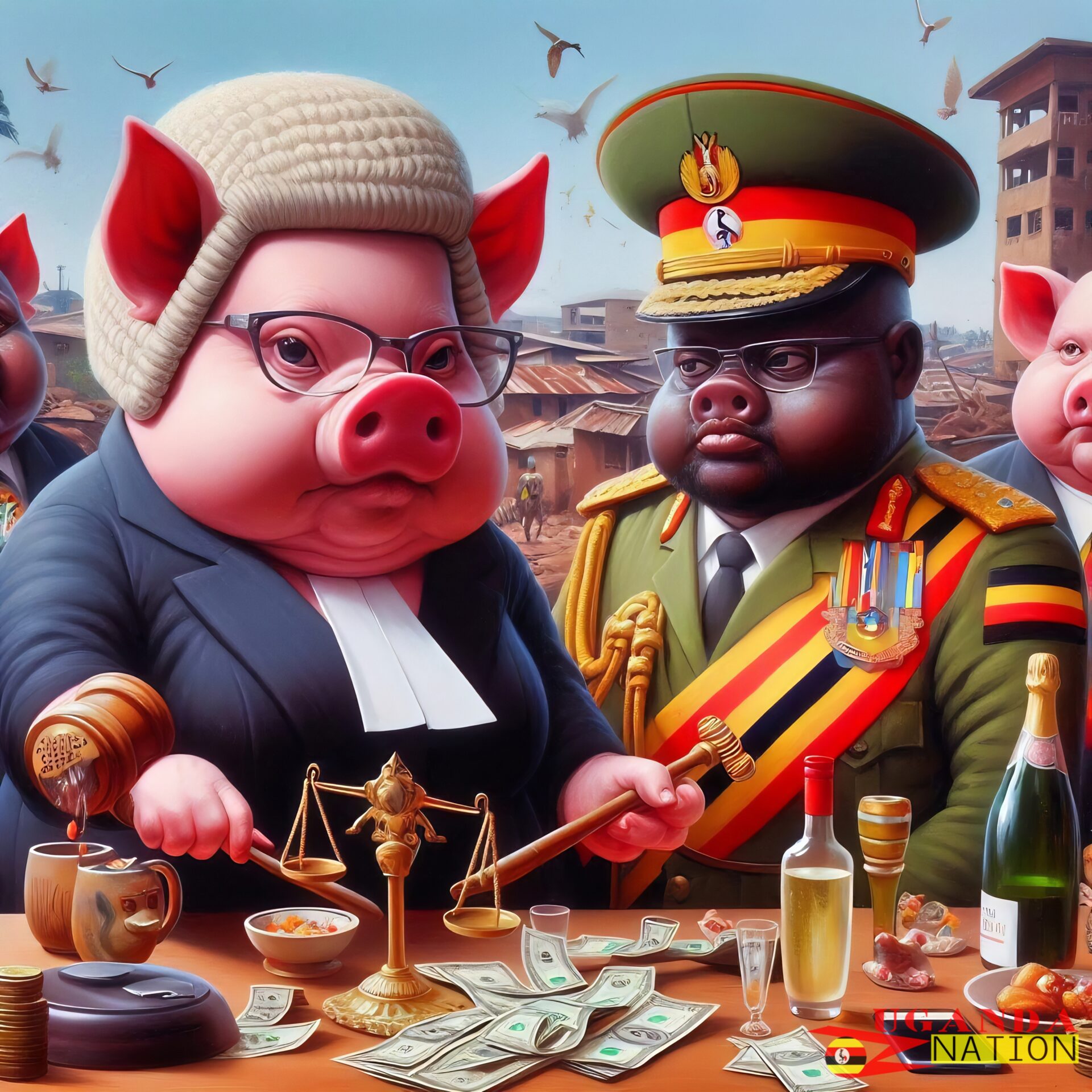
But perhaps the most damning figure was Fred Nyanzi, Bobi Wine’s own brother. By day, he posed as a devoted family man and NUP operative; by night, he moonlighted as an NRM informant, feeding Museveni’s regime sensitive information about internal party matters. It was a betrayal so brazen it bordered on comical—if it weren’t so tragic.
A Grotesque Parody of Democracy
To outsiders, the NUP appeared to embody everything Museveni’s government was accused of lacking: accountability, transparency, and constitutionalism. Yet closer inspection revealed cracks wide enough to drive a truck through. The party operated less like a democratic institution and more like a family business, with nepotism running rampant. Decisions were made not through consultation or consensus but dictated by Bobi Wine’s inner circle—a clique consisting largely of relatives and cronies.
Barbara Kyagulanyi, Bobi Wine’s wife, wielded her influence with ruthless efficiency. She decided who got promoted, who got fired, and which names appeared on commercial documents ranging from land titles to bank accounts. Her word was gospel, and dissenters were swiftly silenced. Critics likened the NUP to a cult, where loyalty was rewarded and questioning authority punished severely.

Meanwhile, Bobi Wine himself seemed increasingly detached from the very people he claimed to represent. Gone were the days of humble beginnings when he sang about ghetto struggles while wearing second-hand clothes. Now, he strutted around in designer suits, boasting about newly acquired mansions and luxury cars—all purchased, allegedly, with funds donated by gullible supporters desperate for change.
“Look at him,” muttered Sarah Nakato, a disillusioned former supporter, as she sipped milky chai at a roadside stall. “Living large while we suffer. He talks about fighting corruption, yet he’s just as bad as Museveni.”
The Chessboard of Betrayal
For Museveni, the situation was nothing short of poetic justice. Here was a man who once dared challenge his throne, reduced to little more than a pawn in his grand strategy. By infiltrating the NUP, Museveni ensured that the opposition remained fractured and ineffective. Instead of presenting a united front, they descended into petty squabbles over money, power, and influence.
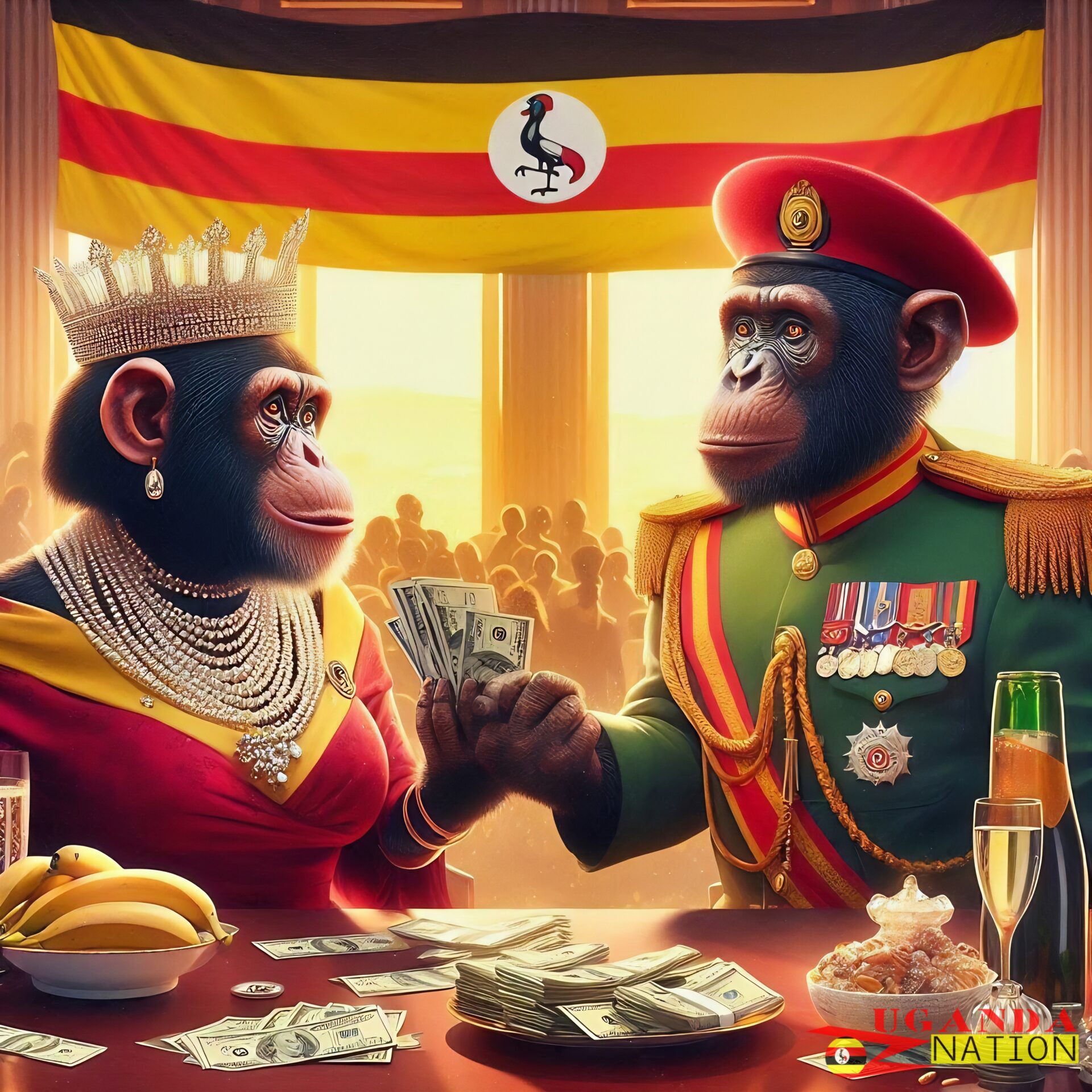
Even more delightfully for Museveni, Bobi Wine unwittingly mirrored many of the tactics he criticized. Military drills became commonplace within the NUP, security details grew ostentatious, and policies eerily echoed the NRM’s infamous Ten-Point Programme. Far from innovating, Bobi Wine simply copied and pasted strategies straight from the dictator’s playbook.
“He’s worse than Museveni,” Sarah continued bitterly. “At least Museveni doesn’t pretend to be anything other than what he is.”
A Masquerade Ball of Hypocrisy
As dusk fell over Kampala, casting long shadows across the city, the absurdity of it all reached fever pitch. In plush hotels and dimly lit boardrooms, deals were struck, alliances forged, and betrayals planned—all in the name of “liberation.” Meanwhile, outside, ordinary Ugandans struggled to survive, their hopes pinned on leaders who seemed more interested in enriching themselves than effecting real change.
It was a masquerade ball of hypocrisy, where masks hid true intentions and everyone played their part. The real tragedy, however, lay in the fact that those who suffered most—the poor, the oppressed, the voiceless—were left holding the empty promises of a revolution hijacked.

And yet, amidst the chaos, a flicker of defiance remained. Somewhere, hidden in the alleys and slums of Kampala, the spirit of People Power still burned bright. For every Bobi Wine blinded by ambition, there existed thousands yearning for genuine liberation. The question was whether they could rise above the masquerade and reclaim what had been stolen from them.
Or would they, too, fall victim to the cruel allure of power?
Chapter 2: A Family Affair
Boardrooms of Betrayal
In the dimly lit boardroom of the National Unity Platform (NUP) headquarters—portraits of smiling faces adorned the walls. These weren’t portraits of ordinary Ugandans or grassroots activists but rather those of Bobi Wine’s family and closest allies. Each frame seemed to whisper conspiratorially, “This is not your party; this is ours.”
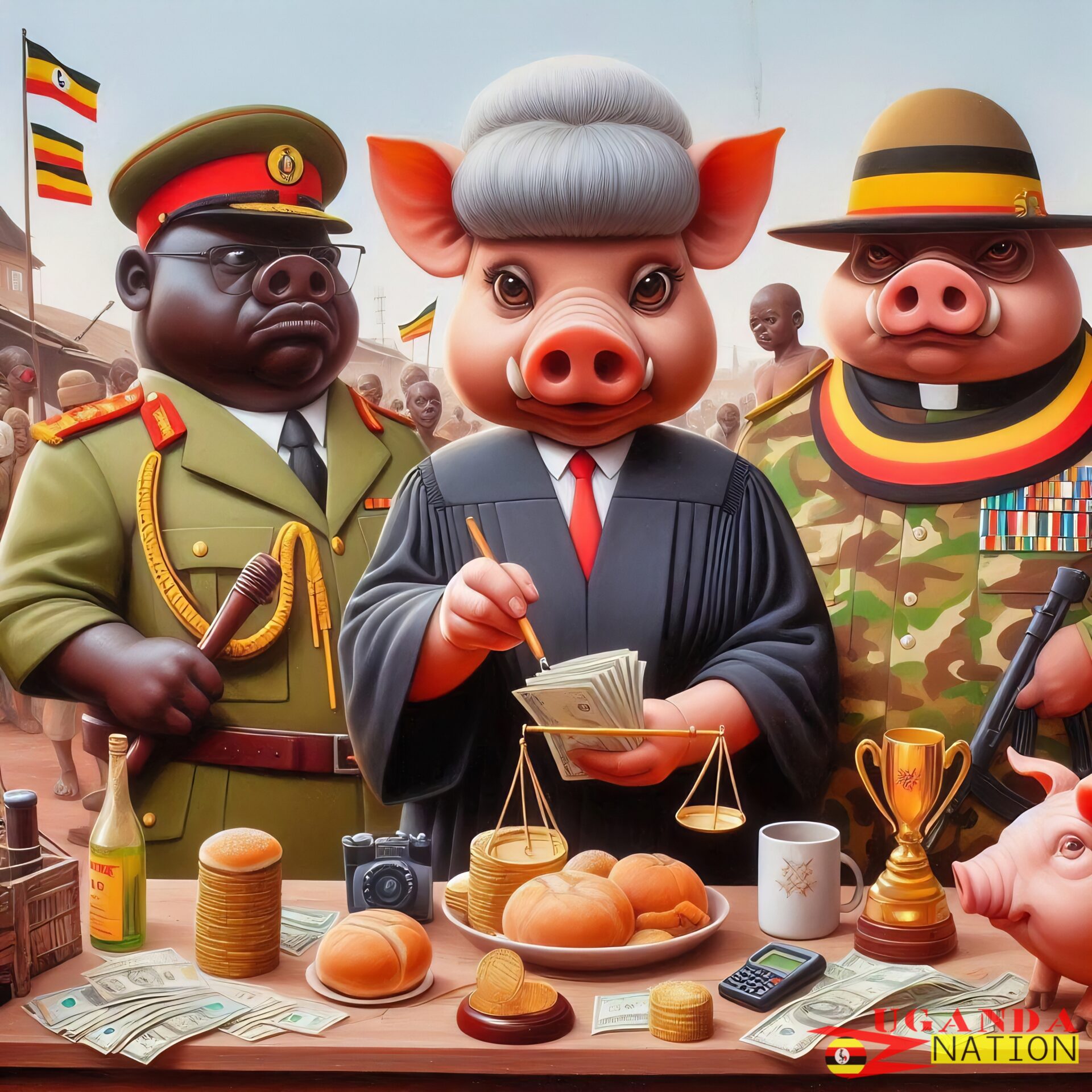
Decisions here were made not through consensus or democratic process but by decree. The air was thick with the scent of imported cologne and stale coffee, as members shuffled nervously in their seats, awaiting instructions from above. At the epicentre of this web of power sat Barbara Kyagulanyi, Bobi Wine’s wife. With an iron grip on the reins of control, she wielded her influence like a machete slicing through sugarcane—ruthless, efficient, and merciless.
Her word was law. Dissenters found themselves swiftly dispatched, either banished from the inner circle or publicly humiliated in WhatsApp groups where gossip spread faster than cholera during rainy season. One such victim was Moses Okello, a veteran activist who dared question why millions earmarked for grassroots mobilisation had instead vanished into thin air. His crime? Asking too many questions. Within days, he was branded a “troublemaker” and ostracised.
Barbara’s authority extended far beyond mere politics. She decided who would rise and who would fall within the ranks of the NUP. Promotions were handed out like wedding favours at a Kampala society function, reserved only for those whose surnames matched hers or belonged to trusted cronies. Titles such as “Regional Coordinator” or “Director of Youth Engagement” became badges of loyalty rather than merit.
Cronyism and Corruption: A Familiar Tune
Cronyism reigned supreme within the NUP, its tendrils reaching deep into every aspect of the organisation. Commercial documents—land titles, bank accounts, procurement contracts—all bore familiar names. It was almost comical how blatant it was. One day, a piece of prime real estate in Bugolobi, purchased using party funds, mysteriously transferred ownership to a shell company linked to Bobi Wine’s brother-in-law. Another day, stacks of cash earmarked for campaign materials ended up financing lavish birthday parties for Barbara’s extended family.
Ordinary members scratched their heads in bewilderment. They had joined the NUP hoping to dismantle corruption, yet here they were witnessing it flourish under their noses. Some clung to hope, believing these allegations were merely propaganda peddled by Museveni’s regime. Others grew disillusioned, quietly slipping away, unable to stomach the hypocrisy any longer.
Critics pointed out the bitter irony: here was a party accusing Museveni of corruption, nepotism, and authoritarianism, yet mirroring his methods with alarming precision. Military drills became commonplace, complete with choreographed marches reminiscent of Idi Amin’s era. Security details swelled in size and ostentation, with bodyguards clad in designer sunglasses and carrying weapons worth more than most Ugandans earned in a lifetime.
Even the NUP’s policies eerily echoed the NRM’s infamous Ten-Point Programme. From vague promises of agricultural reform to pledges of infrastructure development, Bobi Wine wasn’t innovating—he was plagiarising, shamelessly copying and pasting tactics straight from the dictator’s playbook.
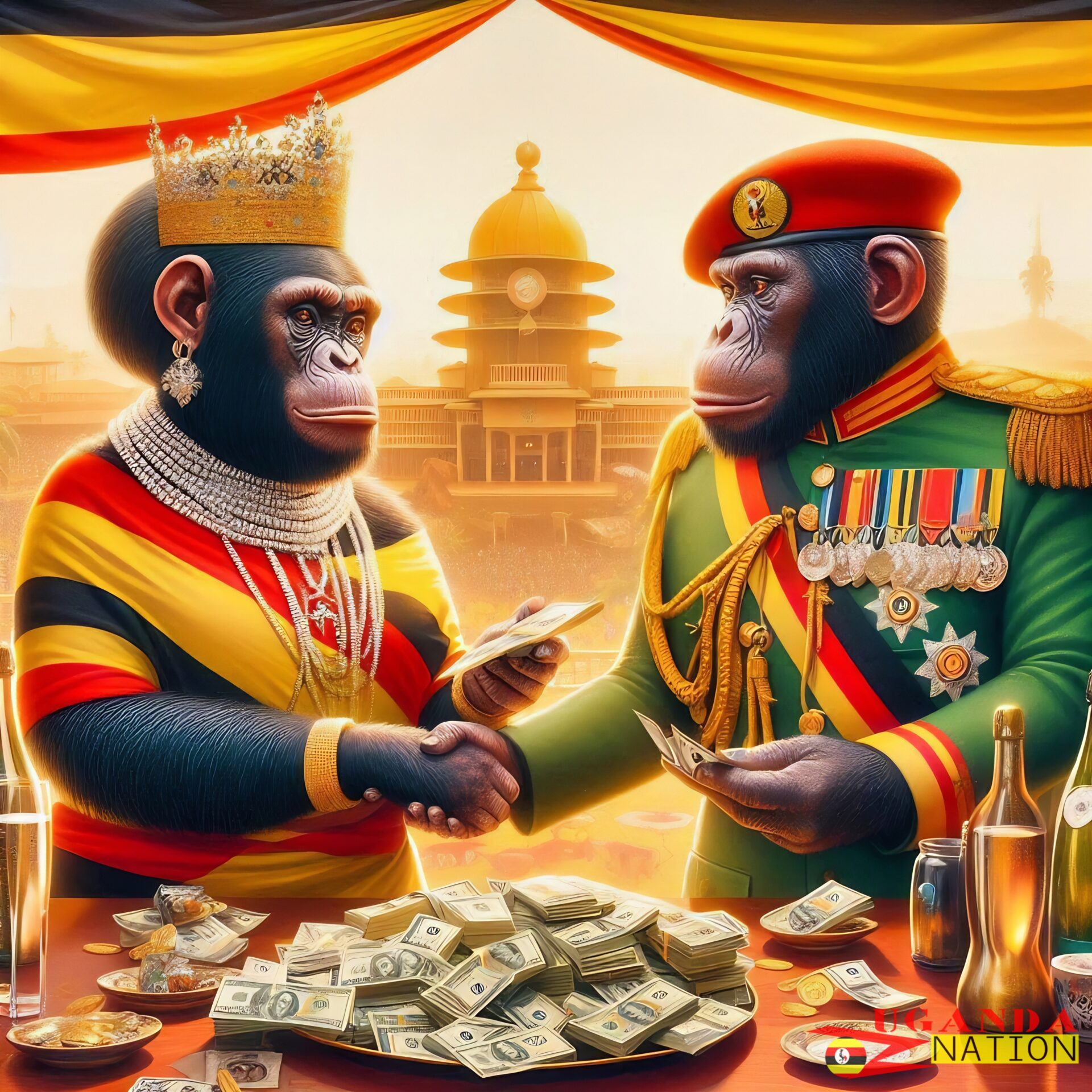
“He’s worse than Museveni,” muttered Sarah Nakato, a disillusioned former supporter, sipping milky tea at a roadside stall near Owino Market. Her voice carried both anger and resignation. “At least Museveni doesn’t pretend to be anything other than what he is. He’s upfront about being a dictator. But Bobi? He wraps himself in the flag of freedom while lining his pockets with our money.”
Sarah’s words struck a chord with passersby, many of whom nodded grimly. For them, Bobi Wine was no longer the fiery rebel they once admired. Instead, he had become a grotesque caricature of everything wrong with Ugandan politics—a man who preached liberation while practicing exploitation.
The Theatre of Absurdity
Life inside the NUP often felt like a bizarre theatrical performance, complete with over-the-top drama and laughable contradictions. Take, for instance, the time Fred Nyanzi—Bobi Wine’s brother and double agent—was caught red-handed leaking sensitive party information to Museveni’s operatives. Rather than face consequences, Fred simply shrugged it off, claiming it was all part of a “strategic alliance.” To make matters worse, Barbara defended him publicly, calling critics “jealous haters” trying to divide the movement.
Then there was the incident involving the purchase of first-class air tickets and five-star hotel rooms in America for his family members and friends, who also happen to be senior party officials. Despite claims of financial transparency, rumours circulated that funds intended for grassroots campaigns had been diverted to purchase first-class air tickets and luxury boat cruises for senior party officials. When confronted with the allegations, Bobi Wine dismissed them, stating, “Leaders require suitable transportation to reach the people.” The irony of this statement was not lost on anyone.
These episodes provided fodder for comedians and satirists across Kampala. On social media platforms like Facebook and Twitter, memes mocking the NUP went viral. One popular image depicted Bobi Wine wearing a crown made of dollar bills, captioned: “From Ghetto President to King of Cronyism.” Another showed Barbara holding a sceptre shaped like a fountain pen, with the tagline: “Signing Away Your Future.”
Yet beneath the laughter lay a deeper sadness. Many Ugandans couldn’t help but feel betrayed. This was supposed to be their revolution—their chance to break free from decades of oppression. Instead, they watched as another self-styled saviour succumbed to the same temptations that corrupted countless others before him.
A Dangerous Game
For Yoweri Museveni, the situation was nothing short of delightful. Watching the NUP implode under the weight of its own contradictions brought him immense satisfaction. He knew better than anyone how power worked—it seduced, corrupted, and ultimately consumed those unprepared for its demands. By infiltrating the NUP with loyalists like David Lewis Rukiri/Rubongoya and Benjamin Katana, Museveni ensured that even if the opposition gained traction, they remained tethered to his puppet strings.
But Museveni also understood the dangers posed by unchecked ambition. If left unchecked, Bobi Wine’s greed could spiral out of control, creating chaos within the ruling elite. Thus, he maintained a delicate balance, supporting the NUP just enough to keep them divided while ensuring they never posed a serious threat to his throne.
Meanwhile, ordinary Ugandans continued to suffer. In slums like Kamwokya and Katwe, children scavenged for scraps in overflowing rubbish heaps, their futures stolen by leaders eager to enrich themselves. Farmers in rural areas struggled to feed their families as drought ravaged crops and corrupt officials skimmed aid money intended for relief efforts. And yet, despite their hardships, the spirit of resistance refused to die.
Somewhere, hidden in the shadows of Kampala’s bustling streets, whispers of rebellion stirred once more. For every Bobi Wine blinded by ambition, there existed thousands yearning for genuine change. The question was whether they could rise above the circus of corruption and reclaim what had been stolen from them—or if they, too, would fall prey to the cruel allure of power.
Chapter 3: The Hollow Echoes of Freedom
A Nostalgia So Painful It Cut Like a Machete
For those who remembered the early days of People Power , nostalgia wasn’t just bittersweet—it stung like salt rubbed into an open wound. Back then, the movement had been raw, unpolished, and breathtakingly alive. Decisions weren’t made in stuffy boardrooms or decreed from ivory towers; they emerged organically, forged in the fires of collective will. The people themselves were the constitution—a living, breathing document written not with ink but with sweat, tears, and unwavering determination.
But now? Now, that spirit lay buried beneath layers of greed, hypocrisy, and betrayal. The absence of a written constitution within the NUP left gaping holes for opportunists to exploit. What was once a beacon of hope had devolved into a cesspool of cronyism and corruption. Where decisions used to flow democratically, guided by the pulse of the masses, they were now dictated by a cabal more interested in self-enrichment than systemic change.
The Exodus of the Visionaries
The elites—the intellectuals, the visionaries—were the first to leave. They saw through the facade faster than anyone else. These were men and women who had joined the movement out of genuine conviction, driven by dreams of a modern Uganda where justice reigned supreme. But as time passed, it became painfully clear that Bobi Wine and his inner circle cared little about ideology or progress. Their sole focus seemed to be amassing wealth and consolidating power.
Dr. Esther Namutebi, a seasoned journalist turned activist, was among the earliest defectors. Once a fervent supporter of the cause, she found herself disillusioned after witnessing Barbara Kyagulanyi single-handedly veto grassroots initiatives aimed at empowering rural communities. “This isn’t about liberation anymore,” she declared during her resignation speech. “It’s about lining pockets and building mansions while the rest of us rot in poverty.”
Her departure sent shockwaves through the ranks of the NUP, sparking debates that quickly spiralled into chaos. Some defended the leadership, arguing that sacrifices must be made for the greater good. Others echoed Esther’s sentiments, accusing Bobi Wine of betraying the very principles he claimed to champion.
Slowly but surely, the gullible began to follow suit. Ordinary members who had initially thrown their weight behind the NUP started questioning whether this so-called revolution would ever deliver tangible results. Broken promises and blatant hypocrisy eroded their faith until all that remained was a hollow shell of what once was.
Whispers Beneath the Surface
Yet amidst the decay, a spark remained. In the shadows of Kampala’s bustling streets, whispers of resistance bubbled beneath the surface, carried by those who refused to surrender. These were individuals who understood that true liberation couldn’t be achieved through partisan politics or empty rhetoric. For them, freedom wasn’t about acquiring wealth or status—it was about breaking chains, both real and metaphorical.
One such individual was Moses Okello, a wiry activist whose eyes burned with the intensity of someone who had seen too much suffering. He gathered a small group of like-minded souls in dingy bars and cramped apartments, plotting ways to revive the true spirit of People Power .
“We’ve let them deceive us long enough,” Moses declared one evening, slamming his fist onto a rickety table laden with empty soda bottles and half-eaten samosas. “Bobi Wine isn’t our saviour—he’s our captor. Look at him! Living large while we suffer. His mansions, his cars…all bought with our blood and sweat.”
A murmur of agreement rippled through the group. Among them sat Sarah Nakato, the disillusioned former supporter who had spent countless nights venting her frustrations over milky tea at roadside stalls. Her voice trembled with emotion as she spoke. “He talks about fighting corruption, yet he’s just as bad as Museveni. Maybe even worse, because he pretends to care.”
Then there was Amina Kasule, a young poet whose verses had once inspired thousands. She leaned forward, her hands clasped tightly together. “We need to go back to the roots,” she said softly, almost hesitantly. “Back to the streets. Back to the people. Let’s remind everyone why we started this fight in the first place.”
Her words hung in the air, igniting a flame of determination. This time, they vowed, there would be no room for impostors or profiteers. This time, the revolution would belong to the people—and only the people.
Reviving the Spirit of Resistance
The idea took hold like wildfire. Secret meetings spread across Kampala, drawing in disillusioned former supporters, grassroots activists, and even a few rogue members of the NUP still clinging to fragments of idealism. Flyers began appearing on walls, bearing messages of defiance: “The People Are Awake.” Graffiti scrawled on buildings proclaimed: “No More Puppets!”
In the slums of Kamwokya and Katwe, impromptu gatherings erupted spontaneously. Elders shared stories of past struggles, reminding younger generations of the sacrifices made by those who came before them. Musicians composed new anthems, blending traditional rhythms with biting lyrics that called out leaders who had betrayed the cause. Even comedians joined the fray, using satire to expose the absurdity of it all.
One particularly memorable skit featured a performer dressed as Bobi Wine, strutting around stage in designer suits and sunglasses while clutching stacks of fake money. Behind him trailed actors portraying ordinary Ugandans, chained together and carrying signs that read: “Freedom Sold Here.” The audience roared with laughter—but beneath the humour lay a searing critique of the current state of affairs.
A Dangerous Game of Shadows
Of course, reviving the spirit of People Power came with risks. Museveni’s regime kept a watchful eye on any sign of dissent, deploying plainclothes operatives to infiltrate meetings and monitor social media activity. Arrests were swift and brutal, often accompanied by accusations of treason or terrorism. Yet despite the danger, the movement grew stronger with each passing day.
For Yoweri Museveni, the resurgence posed a significant threat. While he had successfully co-opted the NUP, turning it into little more than a puppet show, the revival of People Power represented something far more insidious. This was a force untainted by greed or ambition, driven solely by the desire for genuine change. And unlike the NUP, it couldn’t be bought off or manipulated.
Thus, Museveni unleashed his most sinister weapon: misinformation. State-controlled media launched smear campaigns against key figures within the movement, painting them as foreign agents bent on destabilising the country. Rumours spread like wildfire, sowing seeds of distrust among potential allies. Yet even these tactics failed to quell the growing tide of resistance.
Breaking Chains, Real and Metaphorical
As dawn broke over Lake Victoria, casting golden hues across the water, Kampala stirred with renewed energy. Marches erupted spontaneously, led by ordinary citizens armed with nothing but conviction. Songs of resistance filled the air, echoing off concrete walls and rattling iron gates. The message was clear: the era of pretenders was over.
In the end, history would judge harshly those who betrayed the cause. Their names would fade into obscurity, overshadowed by the countless martyrs whose sacrifices paved the way for genuine change. As for Bobi Wine, he would forever remain a cautionary tale—a tragic figure whose hubris blinded him to the very mission he claimed to champion.
And so, beneath the crimson skies of Uganda, a new chapter began. Not one of glory or triumph, but of struggle and sacrifice. For freedom, after all, is never given—it must be taken.
Chapter 4: Shadows of Betrayal
The Neon-Lit Conspiracy
One humid evening, under the flickering neon lights of a dingy bar in downtown Kampala, shadows danced across cracked walls as a clandestine meeting unfolded. The air was thick with cigarette smoke and the faint aroma of roasted maize from a nearby street vendor. Around a rickety wooden table sat remnants of the old guard—men and women who had once marched shoulder-to-shoulder during the heady days of protest, their faces etched with lines of exhaustion and disillusionment.
Moses Okello, a wiry activist with eyes that burned like embers, leaned forward, his voice cutting through the hum of distant traffic. “We’ve let them deceive us long enough,” he declared, slamming his fist onto the scarred surface of the table. Beer bottles rattled, and the group fell silent, their attention fixed on him. “Bobi Wine isn’t our saviour—he’s our captor. Look at him! Living large while we suffer. His mansions, his cars…all bought with our blood and sweat.”
A murmur of agreement rippled through the room, punctuated by nods and muttered curses. Esther Namutebi, a seasoned journalist turned activist, leaned forward, her sharp gaze piercing the dim light. Her tone was measured but laced with venom. “He’s no different from Museveni. Both are wolves in sheep’s clothing. The question is, what do we do now?”
Silence descended, heavy and pregnant with possibility. Outside, a boda-boda rider revved his engine, momentarily drowning out the muffled conversations of other patrons. Inside, the weight of their shared betrayal pressed down on them like the oppressive Kampala heat. Each person wrestled with their own doubts and fears, yet beneath it all burned a flicker of defiance.
Then, softly, almost hesitantly, a voice emerged. It belonged to Amina Kasule, a young poet whose verses had once inspired thousands to rise up against injustice. Her words carried a quiet authority, resonating deeply with those gathered around the table. “We go back to the roots,” she said, her voice steady despite the tremor of emotion behind it. “Back to the streets. Back to the people. Let’s remind everyone why we started this fight in the first place.”
Her declaration hung in the air, igniting a flame of determination among the group. For too long, they had allowed themselves to be led astray by promises of change that never materialised. Now, they vowed to reclaim the revolution—to strip it bare of greed, hypocrisy, and opportunism. This time, there would be no room for impostors or profiteers. This time, the revolution would belong to the people—and only the people.
The Ghosts of Broken Promises
As the meeting drew to a close, each member left with a renewed sense of purpose. But the ghosts of broken promises lingered, haunting their thoughts as they stepped out into the sticky night air. Moses walked briskly towards his modest home in Kamwokya, replaying the events of the evening in his mind. He thought about the early days of People Power , when hope had seemed so tangible you could almost touch it. Back then, the movement had been untainted by ambition or corruption—a force driven solely by the desire for justice and equality.

Now, however, everything felt tainted. Bobi Wine’s transformation from ghetto hero to mansion-dwelling opportunist was nothing short of tragic. Moses couldn’t help but laugh bitterly at the irony. Here was a man who had once sung about suffering alongside the poor, yet now flaunted wealth amassed at their expense. It was as if he had forgotten—or worse, chosen to ignore—the very struggles he claimed to represent.
Esther, too, found herself unable to shake off the bitterness. She remembered interviewing Bobi Wine during his early days as an artist-activist, when his lyrics spoke directly to the hearts of Uganda’s downtrodden youth. At the time, she had believed in his sincerity, convinced that he was using his platform to amplify voices often ignored by mainstream society. But now? Now, she saw him for what he truly was: another self-serving politician masquerading as a freedom fighter.
Even Amina struggled with conflicting emotions. As a poet, she had always believed in the power of words to inspire change. Yet here she was, witnessing firsthand how easily rhetoric could be twisted to serve personal agendas. Still, she refused to give up. If anything, the betrayal only strengthened her resolve. Poetry, after all, had always been a weapon—a tool for exposing truths hidden beneath layers of deception.
A Dangerous Game of Cat and Mouse
Reviving the spirit of People Power would not come without risks. Museveni’s regime kept a watchful eye on any sign of dissent, deploying plainclothes operatives to infiltrate meetings and monitor social media activity. Arrests were swift and brutal, often accompanied by accusations of treason or terrorism. Yet despite the danger, the movement grew stronger with each passing day.
For Yoweri Museveni, the resurgence posed a significant threat. While he had successfully co-opted the NUP, turning it into little more than a puppet show, the revival of People Power represented something far more insidious. This was a force untainted by greed or ambition, driven solely by the desire for genuine change. And unlike the NUP, it couldn’t be bought off or manipulated.
Thus, Museveni unleashed his most sinister weapon: misinformation. State-controlled media launched smear campaigns against key figures within the movement, painting them as foreign agents bent on destabilising the country. Rumours spread like wildfire, sowing seeds of distrust among potential allies. Yet even these tactics failed to quell the growing tide of resistance.
The Battle Within
Meanwhile, cracks began to form within the NUP itself. Some members, disillusioned by Bobi Wine’s leadership, secretly reached out to the revived People Power movement, seeking guidance and support. Others remained loyal, blinded by misplaced faith or fear of retribution. Tensions simmered just below the surface, threatening to boil over at any moment.
Barbara Kyagulanyi, ever vigilant, tightened her grip on the party, cracking down on dissent with ruthless efficiency. Those suspected of disloyalty were swiftly removed from positions of influence, replaced by trusted cronies whose allegiance lay firmly with her husband. Yet even Barbara couldn’t ignore the growing unrest within the ranks. Whispers of rebellion echoed through WhatsApp groups and encrypted chats, spreading like wildfire among frustrated members.
Fred Nyanzi, Bobi Wine’s brother and double agent, found himself caught in an increasingly precarious position. Tasked with feeding sensitive information to Museveni’s operatives, he struggled to maintain his cover as suspicions mounted. One wrong move, and he risked exposure—not just to the NUP leadership but also to the very regime he served.
A Spark Ignites
Despite the challenges, the revived People Power movement gained momentum. Flyers plastered on walls bore messages of defiance: “The People Are Awake.” Graffiti scrawled on buildings proclaimed: “No More Puppets!” In slums like Katwe and Kamwokya, impromptu gatherings erupted spontaneously, drawing crowds eager to hear speeches from grassroots activists and poets alike.
One particularly memorable rally took place outside Owino Market, where vendors paused mid-haggle to listen as Amina Kasule recited a powerful poem titled “Chains We Forge Ourselves.” Her words struck a chord with the audience, many of whom wept openly as she described the pain of betrayal and the enduring hope for liberation.
“We’ve been betrayed before,” she concluded, her voice rising above the din of honking matatus and shouting hawkers. “But we won’t be silenced. Not today. Not ever.”
The crowd erupted into cheers, chanting slogans that echoed through Kampala’s bustling streets. For the first time in years, it felt as though the spirit of resistance had returned—with a vengeance.
Breaking Free
As dawn broke over Lake Victoria, casting golden hues across the water, Kampala stirred with renewed energy. Marches erupted spontaneously, led by ordinary citizens armed with nothing but conviction. Songs of resistance filled the air, echoing off concrete walls and rattling iron gates. The message was clear: the era of pretenders was over.
In the end, history would judge harshly those who betrayed the cause. Their names would fade into obscurity, overshadowed by the countless martyrs whose sacrifices paved the way for genuine change. As for Bobi Wine, he would forever remain a cautionary tale—a tragic figure whose hubris blinded him to the very mission he claimed to champion.
And so, beneath the crimson skies of Uganda, a new chapter began. Not one of glory or triumph, but of struggle and sacrifice. For freedom, after all, is never given—it must be taken.
Chapter 5: The Reckoning
Dawn Over Lake Victoria
As dawn broke over Lake Victoria, its shimmering waters bathed in golden hues, Kampala stirred with a quiet intensity that belied the storm brewing beneath its surface. The city was alive—not with the usual chaos of boda-boda riders weaving through traffic or hawkers shouting their wares—but with something far more profound: rebellion.
Flyers plastered on walls bore messages of defiance, stark black letters against bright red paper: “The People Are Awake.” Graffiti scrawled across concrete buildings proclaimed: “No More Puppets!” In slums like Kamwokya and Katwe, impromptu gatherings erupted spontaneously, drawing crowds eager to hear speeches from grassroots activists and poets alike. This wasn’t just dissent; this was an awakening—a collective realisation that they had been betrayed by those who promised liberation.
Bobi Wine’s Illusion of Control
Oblivious to the tempest swirling beneath his feet, Bobi Wine lounged in his mansion—a sprawling estate tucked away in one of Kampala’s most exclusive neighbourhoods. Clad in designer pyjamas, he scrolled lazily through social media updates praising his latest charity gala. Photos of him posing with celebrities and diplomats filled his feed, accompanied by glowing captions about his philanthropy and vision for a “New Uganda.”
“Look at these comments,” he said smugly to Barbara, who sat nearby sipping imported coffee. “They love me. They see what I’m doing.”
Barbara smirked, her manicured nails tapping rhythmically against her mug. “Of course they do,” she replied coolly. “You’re giving them exactly what they want to see—a hero. Let them keep believing while we take care of business.”
Neither seemed to notice—or perhaps chose to ignore—the growing discontent festering outside their gilded bubble. To them, the marches and graffiti were nothing more than minor inconveniences, easily quashed by hiring PR firms or deploying security forces. After all, hadn’t they survived worse? Hadn’t they always found a way to silence critics?
But this time, it was different. This time, the people weren’t protesting empty promises or broken dreams—they were fighting back against betrayal itself.
Museveni’s Calculated Confidence
Meanwhile, deep within State House, Yoweri Museveni chuckled darkly as he reviewed reports from his intelligence operatives. His double agents embedded within the NUP had done their job well, ensuring that any semblance of unity within the opposition remained fractured. He knew better than anyone how power worked—it seduced, corrupted, and ultimately consumed those unprepared for its demands.
Leaning back in his leather chair, Museveni lit a cigar, the smoke curling lazily towards the ceiling. For decades, he had ruled Uganda with an iron fist, crushing dissent and co-opting rivals into submission. And now, here was Bobi Wine, once hailed as his greatest threat, reduced to little more than a caricature of corruption and greed.
“They think they can challenge me?” Museveni muttered under his breath, shaking his head in amusement. “Let them try. By the time they realise what they’ve become, it’ll be too late.”
Yet even as he revelled in his perceived victory, a flicker of unease lingered at the edges of his mind. Something felt…off. The marches erupting across Kampala weren’t isolated incidents; they were coordinated, deliberate, and driven by conviction rather than desperation. Could it be possible that despite his best efforts, a genuine movement was taking shape—one untainted by greed or ambition?
Museveni dismissed the thought almost immediately. No, he told himself. Such movements were relics of the past, romanticised notions peddled by idealists too naive to understand the harsh realities of power. Still, he ordered his operatives to monitor the situation closely, just in case.
The Tide Turns
Outside, however, the tide was turning. Marches erupted spontaneously, led by ordinary citizens armed with nothing but conviction. From Owino Market to Nakasero Hill, songs of resistance filled the air, echoing off concrete walls and rattling iron gates. These weren’t professional activists or politicians; they were farmers, teachers, students, and market vendors—people who had grown tired of being treated as pawns in a game they never asked to play.
At the forefront of the movement stood Moses Okello, his wiry frame moving with purpose as he addressed crowds gathered in dusty streets. Beside him was Amina Kasule, her voice rising above the din as she recited poems that spoke directly to the hearts of those listening. Together, they reminded everyone why they had started this fight in the first place—not for wealth or status but for freedom, justice, and dignity.
“The era of pretenders is over!” Moses shouted, his voice hoarse but unwavering. “We will not be silenced. We will not be bought. We will not stop until we have taken back what belongs to us!”
The crowd roared in approval, chanting slogans that reverberated through Kampala’s bustling streets. For many, this was the first time they had dared to raise their voices against oppression. Yet there was no fear—only determination.
A Movement Untainted by Greed
What set this new wave of resistance apart from previous attempts was its purity. Unlike the NUP, which had devolved into a cesspool of cronyism and corruption, this movement was untainted by greed or ambition. Decisions were made collectively, guided by the pulse of the masses rather than authoritarian diktats. Resources were pooled together, with every shilling accounted for and used solely for the benefit of the cause.
Even comedians joined the fray, using satire to expose the absurdity of it all. One particularly memorable skit featured performers dressed as Bobi Wine and Museveni, arguing over who deserved credit for ruining Uganda. The audience roared with laughter—but beneath the humour lay a searing critique of the current state of affairs.
“You see,” one comedian quipped during the performance, “the problem with our leaders is that they both want to eat the cake and still call themselves bakers. But guess what? The people are hungry, and we’re done waiting for crumbs!”
History Will Judge Harshly
In the end, history would judge harshly those who betrayed the cause. Their names would fade into obscurity, overshadowed by the countless martyrs whose sacrifices paved the way for genuine change. As for Bobi Wine, he would forever remain a cautionary tale—a tragic figure whose hubris blinded him to the very mission he claimed to champion.

For Museveni, too, the reckoning loomed large. Though he believed himself untouchable, the cracks in his regime were beginning to show. Corruption scandals, economic hardship, and widespread disillusionment among the youth threatened to erode his grip on power. Even his most loyal supporters began questioning whether clinging to authority at all costs was worth the price of national stability.
And so, beneath the crimson skies of Uganda, a new chapter began—not one of glory or triumph but of struggle and sacrifice. For freedom, after all, is never given—it must be taken.
Epilogue: Legacy of Ashes and Hope
Years later, when historians wrote about this tumultuous period, they noted one undeniable truth: revolutions are fragile things, easily co-opted by those seeking power. Yet they also acknowledged that hope, much like fire, can never truly be extinguished. It smoulders quietly, waiting for the right moment to roar back to life.
In the hearts of Ugandans, the dream of true liberation endured—a testament to the indomitable human spirit. And though the road ahead remained fraught with challenges, one thing was certain: the people would rise again. Not as followers of false prophets but as architects of their own destiny.
Or, as Amina Kasule once wrote in a poem that became an anthem for the movement:
“When chains fall heavy on your wrists,
Remember: you forged them not alone.
Break free, oh child of dust and flame,
For liberty calls—and she is home.”
Epilogue: The Legacy
Years Later: A Historian’s Reflection
In the hallowed halls of Makerere University, where dusty bookshelves groaned under the weight of countless forgotten stories, Professor Sarah Namutebi sat at her desk, penning what would become one of the most definitive accounts of Uganda’s tumultuous modern history. Her spectacles perched precariously on her nose, she paused mid-sentence to glance out the window. The campus buzzed with life—students debating passionately beneath ancient jacaranda trees, their voices echoing faintly through the humid air.
Sarah sighed deeply, her mind drifting back to those chaotic years when hope and despair danced in a macabre tango across Kampala’s streets. She had lived through it all—the heady days of People Power , the betrayal of the NUP, and finally, the resurgence of genuine resistance. Now, as she chronicled these events for posterity, she couldn’t help but marvel at how fragile revolutions truly were.
“Revolutions,” she wrote, her handwriting steady despite the weight of emotion behind each word, “are like delicate flowers blooming amidst thorns. They require constant nurturing, unwavering conviction, and above all, an unyielding commitment to principles greater than oneself. Yet they are also vulnerable—easily co-opted by opportunists seeking power rather than progress.”
She paused again, this time to sip lukewarm tea from a chipped mug emblazoned with the words “Education is Liberation.” It was ironic, really, how often that phrase had been twisted into empty rhetoric by leaders more interested in self-enrichment than societal transformation.
Yet even as Sarah acknowledged the fragility of revolutions, she also recognised something else—a truth so profound it bordered on spiritual. Hope, much like fire, could never truly be extinguished. It might smoulder quietly during the darkest nights, hidden beneath layers of ash and despair, but it always waited patiently for the right moment to roar back to life.
The Dream That Endured
For Ugandans, the dream of true liberation endured—not because it was easy or convenient but because it was necessary. In slums like Kamwokya and Katwe, mothers whispered tales of resilience to wide-eyed children as they cooked meals over open flames. Farmers in rural villages spoke of martyrs whose sacrifices paved the way for future generations. And poets like Amina Kasule continued to weave verses that reminded everyone why they fought in the first place.
Amina herself had become a living legend, her name synonymous with courage and defiance. Though her once-youthful face now bore lines etched by years of struggle, her voice remained as powerful as ever. At rallies held beneath sweltering suns or dimly lit community halls, she recited poems that stirred souls and ignited passions long thought extinguished.
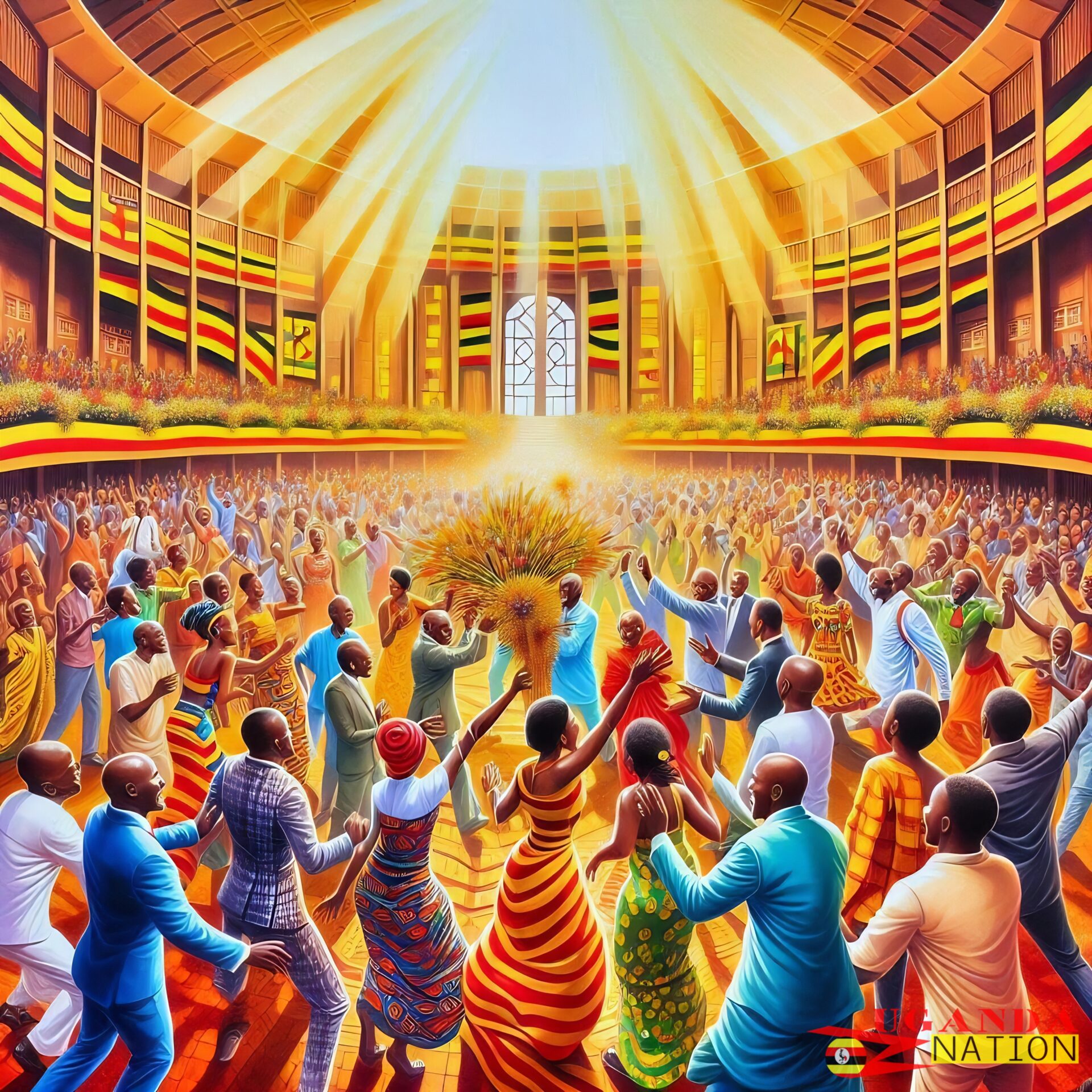
One such poem, titled “Embers Beneath the Ash,” became an anthem for the movement:
“When silence falls heavy on your tongue,
Remember: the winds of change still sing.
Beneath the ashes of broken dreams,
Lies a fire waiting to take wing.”
Her words resonated deeply, not just with those who remembered the early days of People Power but also with younger generations eager to reclaim their birthright. For them, the fight wasn’t about revenge—it was about justice, dignity, and the promise of a better tomorrow.
The Road Ahead
Despite the enduring spirit of resistance, no one dared claim victory prematurely. The road ahead remained fraught with challenges—economic hardship, corruption scandals, and the ever-present threat of authoritarian crackdowns loomed large. Yoweri Museveni, though aging, clung stubbornly to power, deploying every tactic imaginable to quell dissent. Bobi Wine, meanwhile, faded into obscurity, his name reduced to little more than a punchline in comedians’ routines.
Yet even as old adversaries crumbled under the weight of their own hubris, new leaders emerged—grassroots activists, teachers, farmers, and students united not by ambition but by purpose. They understood that freedom wasn’t something bestowed upon them; it was something they had to seize with their bare hands.
Moses Okello, now a grizzled veteran of countless protests, often reminded younger members of the movement of this simple yet profound truth. “They can arrest us,” he would say during impromptu gatherings outside Owino Market, “they can beat us, they can try to silence us—but they cannot kill our spirit. As long as we stand together, nothing can stop us.”
His words carried the weight of experience, earned through years of sacrifice and suffering. He had seen friends disappear without a trace, witnessed peaceful marches turn into violent clashes, and endured nights spent hiding in safe houses while security forces combed the streets for dissidents. Yet despite everything, he refused to give up.
A Fragile Flame
There were moments, of course, when doubt crept in—when the enormity of the task ahead seemed insurmountable. On such occasions, people turned to rituals that connected them to their ancestors and their shared history. Elders gathered around flickering fires to share stories of past struggles, reminding younger generations of the sacrifices made by those who came before them. Musicians composed new anthems blending traditional rhythms with biting lyrics that called out leaders who betrayed the cause.
Even humour played its part, offering a brief reprieve from the grim realities of daily life. Comedians took to stages across Kampala, using satire to expose the absurdity of it all. One particularly memorable skit featured performers dressed as Museveni and Bobi Wine arguing over who deserved credit for ruining Uganda. The audience roared with laughter—but beneath the humour lay a searing critique of the current state of affairs.
“You see,” one comedian quipped during the performance, “the problem with our leaders is that they both want to eat the cake and still call themselves bakers. But guess what? The people are hungry, and we’re done waiting for crumbs!”
An Undeniable Certainty
Through it all, one thing remained certain: the people would rise again. Not as followers of false prophets but as architects of their own destiny. They would build institutions grounded in transparency, accountability, and justice. They would demand leaders who served not themselves but the collective good. And they would ensure that the mistakes of the past were never repeated.
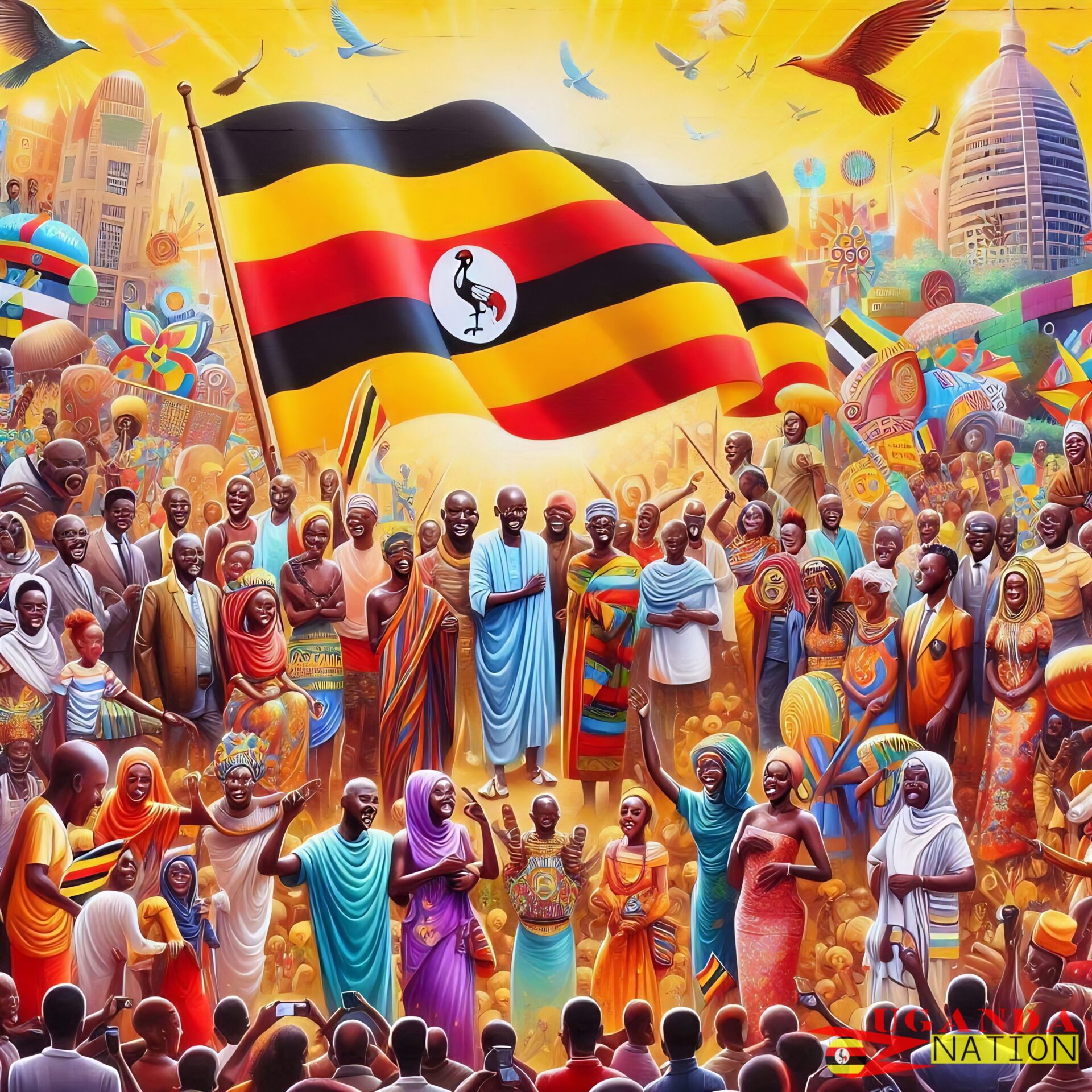
As Sarah Namutebi closed her notebook and leaned back in her chair, she allowed herself a small smile. The journey ahead would be long and arduous, filled with setbacks and triumphs alike. But she knew—just as she had always known—that the indomitable human spirit could overcome even the greatest odds.
And so, beneath the crimson skies of Uganda, the legacy of resilience endured. For freedom, after all, is never given—it must be taken.
The End.

